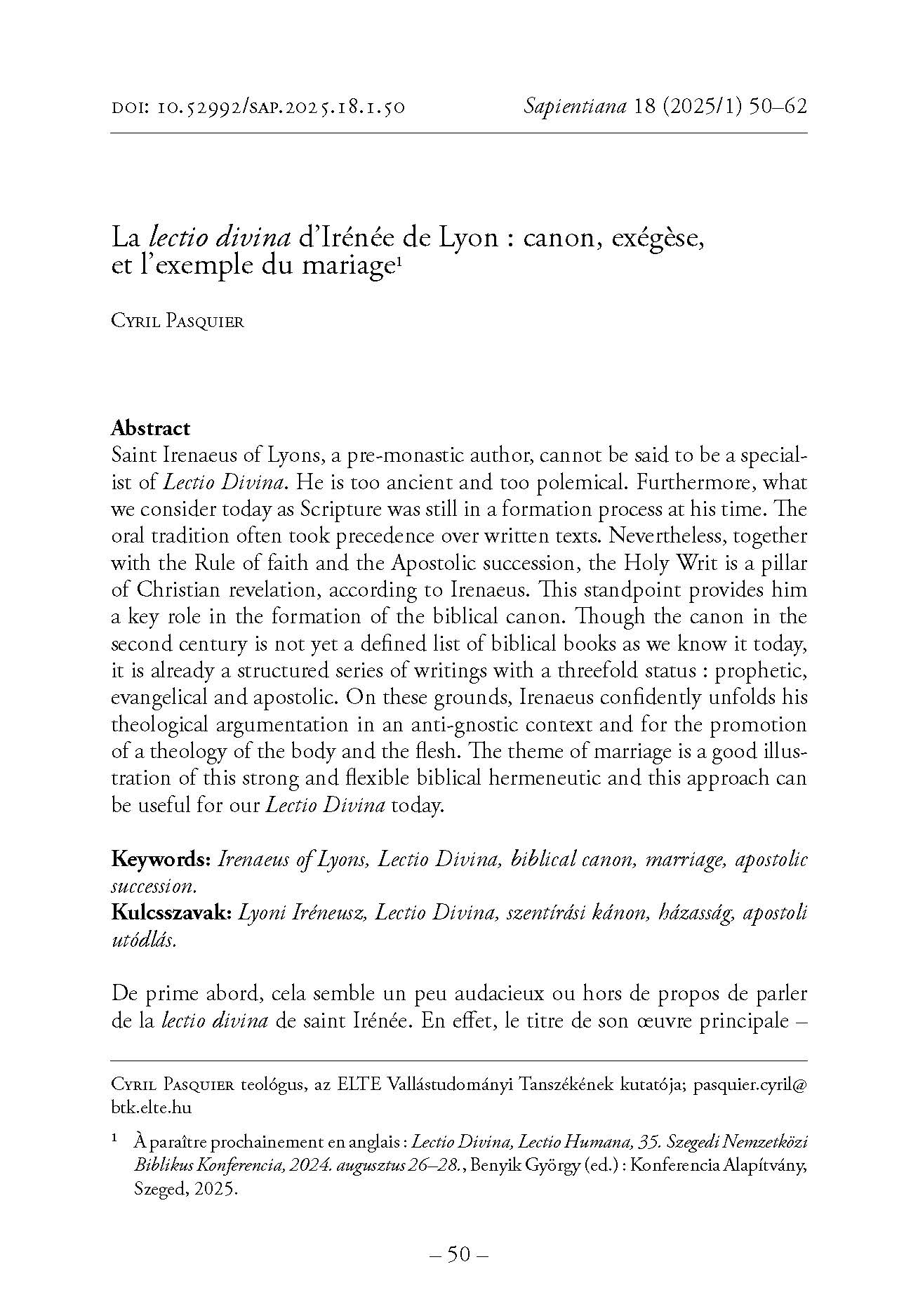La lectio divina d’Irénée de Lyon : canon, exégèse, et l’exemple du mariage
Absztrakt
Lyoni Szent Iréneusz a szerzetesség kora előtti szerzőként nem a Lectio Divina szakértője, hiszen túlságosan régen élt és túl polemikus. Ráadásul az, amit ma Szentírásnak tekintünk, az ő idejében még kialakulóban volt; a szóbeli hagyomány gyakran elsőbbséget élvezett az írott szövegekkel szemben. Mindazonáltal Iréneusz számára a Szentírás – a hitszabállyal és az apostoli utódlással együtt – a keresztény kinyilatkoztatás alapja. Ezen álláspontja kulcsszerepet biztosít számára a kánon kialakításában. Habár a 2. században a kánon még nem a bibliai könyvek meghatározott listáját jelenti, ahogyan azt ma ismerjük, mégis már háromféle státusszal rendelkező írások strukturált sorozata: prófétai, evangéliumi és apostoli. Erre az alapra helyezve Iréneusz biztos kézzel építi fel teológiai érvelését antignosztikus kontextusban, felvázolva a test és a testben való létezés teológiájának körvonalait. A házasság témája jól illusztrálja ezt az erőteljes és rugalmas bibliai hermeneutikát. Ez a megközelítés hasznos lehet a Lectio Divina mai gyakorlata számára is.







